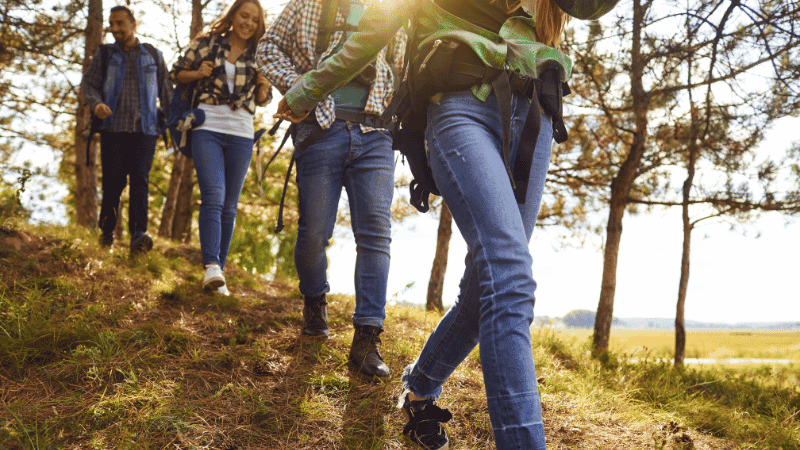If you are a first-time traveler,Should Know below concepts of Nine Things Beginner Travellers rules. You may be spending a lot of time researching travel, your location, and what can go wrong. This is particularly true for first-time overseas tourists.
What happens if your flights are canceled? How do you move around the town you’re visiting? Is there EU261 reimbursement for flights in Europe? Will you know how to dress and behave in a foreign culture or area?
Sometimes, the more you read and research, the more you find to be concerned about. Try to learn what you’ll need to know without worrying about what could go wrong. Here are the most important things to learn and understand before embarking on your first journey.
1.Research Well
Before you travel, research your destination. This will help you learn local norms and culture, as well as any potential safety issues. Learn what is expected of visitors and practice new conventions such as bowing, shaking hands, or kissing to make them feel less embarrassed. Respect the local norms and traditions. This encompasses dress rules, religious rituals, and social norms. Make sure you are prepared to dress correctly for the place you are visiting, and that your clothing is modest and unobtrusive. Learn about the tipping norms in your destination and bring the proper change or money with you before arriving at your hotel or restaurant.
2.Stay Safe
In terms of personal safety, use common sense. Do not leave your drinks alone, and avoid going alone at night in unfamiliar regions. Stay mindful of your surroundings at all times. Keep an eye on your stuff and use caution in new surroundings. If you become lost or need assistance, don’t be afraid to contact locals or hotel personnel for help. They can often provide useful information and recommendations. However, be wary of who you trust–if someone offers to give you a ride or take you to an unusual location rather than merely providing you instructions, proceed with caution.
Also, be careful when eating and drinking. In locations with poor cleanliness, avoid drinking tap water, eating raw or undercooked meals, and using ice. Ask reliable locals, such as hotel personnel, where to dine securely and where to avoid.
3.Don’t Overpack
When traveling, try to pack lightly. Try to bring only what you need and leave room in your suitcase for souvenirs. Your main piece of luggage should be a backpack or a carry-on-sized suitcase. This will make it easier to navigate airports and take public transportation. You will also save money by not having to pay for checked baggage or excessive luggage fees. When you get at your location, you will not have to go to the baggage carousel and wait for your bags. Remember that you can often buy basic products at your destination for cheaper than the cost of bringing them with you.
4.Keep Track of Important Documents
Make copies of all relevant documents, including your passport, driver’s license, and travel insurance policy. Keep one copy for yourself, and leave another with a trusted friend or family member at home. Keep these goods in your carry-on; never place them in checked luggage. When going between excursions, sites, and activities, have your identification with you at all times. If you misplace your documents, tell the authorities as soon as possible, as replacement may be delayed.
5.Pay in Local Currency
Keep local money on hand for your purchases. While many shops and restaurants accept different currencies, not all do. The last thing you want is to go out to eat just to discover that you don’t have enough money to pay for it.
Even in stores and venues that accept foreign currency, you will most certainly pay far more exchange costs than if you converted your money at a bank or comparable institution. You will also feel secure knowing that you have enough money to cover bills and emergencies.
6.Pay Attention to Your Budget
It’s tempting to get carried away on vacation, but sticking to your budget will help you avoid overpaying. Make careful to keep track of your finances as you go. When you’re exchanging money or using a foreign currency, it’s easy to lose track of how much you’ve spent. Even if you don’t utilize foreign currency, travel expenses can rapidly pile up, and many individuals excuse overpaying since they’re on vacation. That is OK, but if you find yourself spending more than you intended on a daily basis, it will rapidly add up. Always set aside a percentage of your money for emergencies.
7.Check Your Phone Plan
Check your phone plan for roaming prices, available roaming minutes, and coverage areas. You should also make sure that your phone will work in the location where you are vacationing. If your roaming plan is too expensive or you don’t have dependable service, consider purchasing a per-minute travel phone just for calling. When Wi-Fi is accessible, you can continue to use your smartphone for social networking, mapping, and other purposes.
8.Call Your Credit Card Company
Credit card issuers immediately block any transactions that appear suspicious, and one of the triggers can be purchases made outside of your usual regions of work and vacation. If you are planning to travel somewhere new, to a different county, or if you are unsure about your company’s fraud alert policy, phone them before you leave. Let them know where you will be traveling and when you will be there. You can request that they reinstate the protection policy after you return home.
9.Learn The Language
language fluently, but you should acquire as many basic phrases as possible. You should learn how to ask for directions, food, hello and thank you, and other common words. If you want to learn as much of the language as possible in a short period of time, consider enrolling in a travel language course. Also, download a translation program for your phone so you can converse beyond simple terms as necessary.




